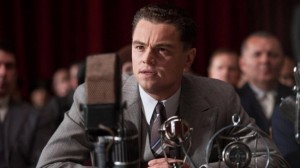 (M) Directed by Clint Eastwood
(M) Directed by Clint Eastwood
J Edgar Hoover (Leonardo DiCaprio) was the head of the Federal Bureau of Investigation and its fledgling predecessor for 48 years. Starting with a few staff, his job was to monitor un-American activities and bring the perpetrators to justice.
Established at a time when Communism was seen as a disease that needed to be exterminated, the department grew as criminals replaced Communists and subversive radicals continued to pose the threat of plunging the country into anarchy. At least that was the general propaganda the FBI chief used to gander an unprecedented amount of power.
Hoover was very methodical and responsible for establishing a centralised fingerprint database. He also set up the first forensic laboratory and even resorted to illegal methods such as phone tapping to collect evidence. Serving under a succession of eight United States presidents along with his loyal secretary Helen Grady (Naomi Watts), Hoover ensured that he kept his position by saving particularly sensitive information in his private files. Information that would damage those in power if it were to be made public, very often information about inappropriate sexual relations, information that ensured that he kept his position despite having a few secrets of his own.
Central to Clint Eastwood’s exploration of the life of J Edgar Hoover is the fact that he never had a relationship with a woman. Eastwood paints him as a man who couldn’t even dance with women, even a woman as beautiful and talented as Ginger Rogers. He lived with and was devoted to his mother (Judy Dench in another strong role) until her death, after which he stayed in his childhood home which he bequeathed to his companion of forty years – Clyde Tolson (Armie Hammer). Hoover’s mother told him she would rather have a dead son than a gay one, but there was plenty of talk about the two men who worked closely together, had meals together, socialised in the evenings and even went on vacations together.
When relating his life-story, Hoover admits that as the protagonist of his own life, he should retain a bit of mystery. Leonardo DiCaprio’s powerful portrayal shows a man full of contradictions. He shows a man who was driven by a fear of being exposed for whom he really was, and who utilised the fear of those around him and the nation as a whole to ensure his safety.
Lezly Herbert




